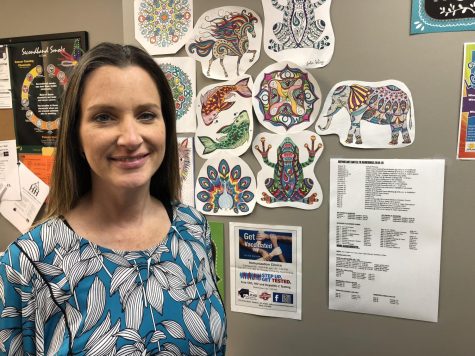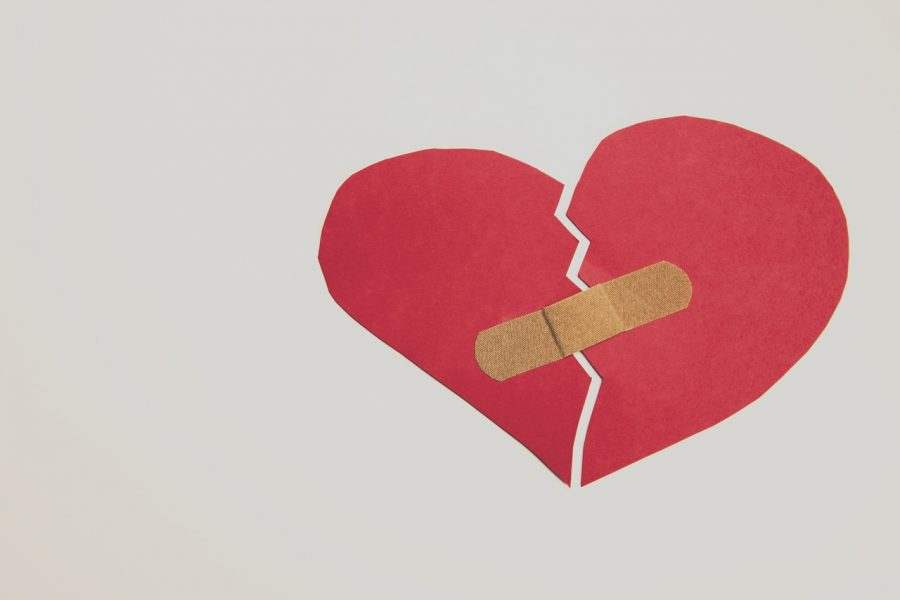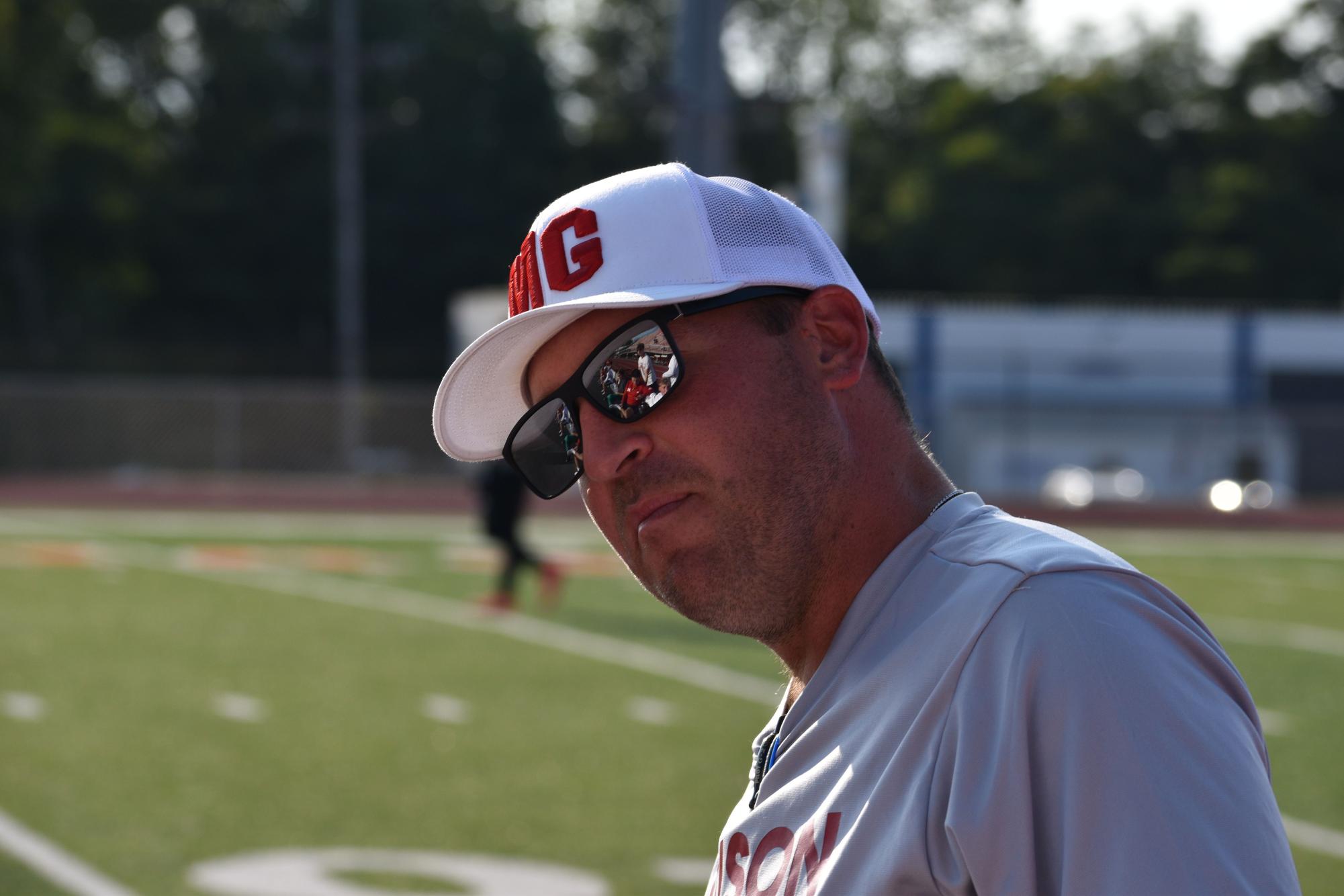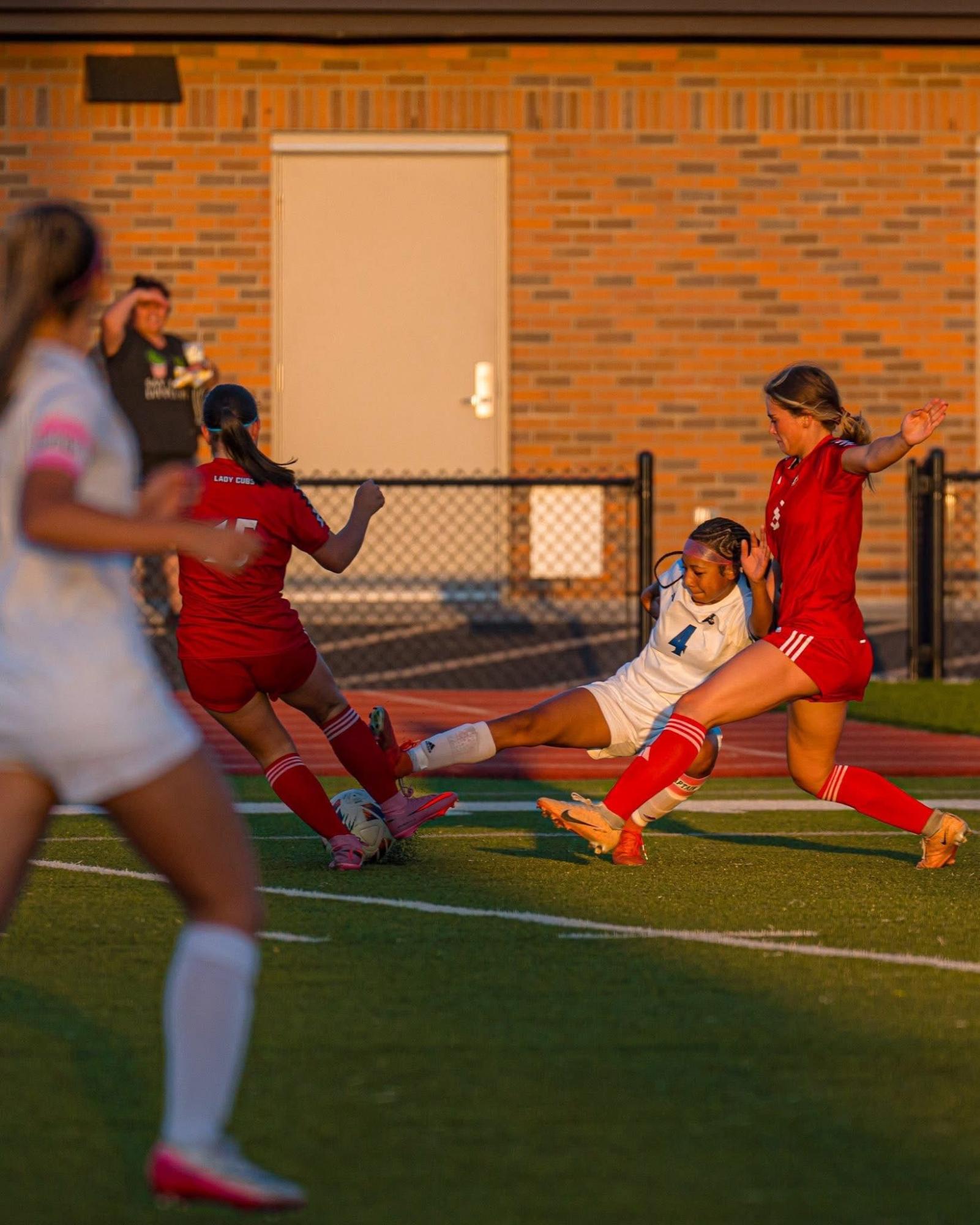How to Help Yourself and Others Battling with Depression
October 1, 2018
Students, both in high school and in college, are secretly hiding depression. Though it may not always be visibly noticeable, it is a very common issue in today’s society. Mrs. Natasha Leahigh, a counselor at Madison Consolidated High School, said she considers depression a huge crisis in young adults today.
“You must be careful with the word depression. Depression is more than being sad or grieving a loss of a friendship/relationship or a death of a loved one. Being sad is normal and a natural feeling, and there is a process to that,” said Leahigh.
When symptoms of depression or what shows to be sadness last more than 2-3 weeks, it may be time to seek help from a professional. If a friend or a loved one has mentioned or alluded to suicide, carry on your conversation with compassion and a desire to help, then consult a trusted adult and inform them of the situation.
Just because someone is sad or not acting themselves doesn’t mean they are struggling with depression. There are other possible scenarios, but if you feel it is a serious matter, let an adult know so they have access to provide help for that person. Many students who seek Leahigh’s counsel, just need a safe place to be able to vent or share an issue that has arisen in school, friends, home, or themselves. Leahigh does this by having a place behind closed doors that is private with no judgment but with a mindset of listening and a caring heart.
Said Leahigh, “Just looking at someone, you might not be able to even tell that they are depressed. As a friend, you may see small things changing in them: things like a change in their sleeping or eating patterns, moods, irritability, (they are) no longer excited to do what they used to do, or thoughts of suicide.”

Dr. Tony Schellenberger, an Ivy Tech psychology professor, talked about why depression is on the rise.
“These types of questions often have a multitude of factors that affect them. It could have to do with increased feelings of isolation due to a world that is becoming more electronic and less person-to-person, financial aspects of families, or increases in parents having to work multiple jobs could be a part of it, and we can’t discount the effect of things like bullying or lack of good support structures in our lives these days.”
The odds of adolescents suffering from clinical depression grew by 37 percent between 2005 and 2014, according to a study by Ramin Mojtabai, a professor at Johns Hopkins Bloomberg School of Public Health, and according National Institute of Mental Health, in 2016 at least 3.1 million young adults from age 12-17 had gone through serious depressive episodes. Also, while only around 20% of teens who suffer from depression actually end up receiving help, around 41% of adolescent females and 21% of adolescent males had feelings of sadness and hopelessness. There are many ways to deal with depression. Some of those ways are therapy, medication, exercise, good nutrition, remaining positive, expressing what you’re feeling to a safe and trustworthy person or writing it down.
“While we may never know how many people we come in contact with are suffering from or dealing with depression, I am generally approached by at least four or more students each semester who are impacted by depressive feelings or thoughts. At the Ivy Tech Madison campus we work with Centerstone to connect students in need of mental health assistance with those who are able to provide these services. Unfortunately, less than half of the people who are experiencing significant depression will seek help. Our society still places a lot of stigma on mental health related issues, and people often blame themselves for having these feelings. It really is on us, those who are around them, to let them know that we care and that seeking treatment is not a sign of weakness.” said Schellenberger.

The number of students hiding depression and the amount that present symptoms are substantial. You may not personally notice or experience depression, but support can be invaluable for your friends and family who are suffering. Offer them encouragement and love to help prevent the depression from worsening. If you sense the situation has gotten serious enough, consider gathering the information to share with a dependable adult who may offer further help to your friend or be able to get them in contact with someone who can.
If you are a student at MCHS, Mrs. Leahigh is located in the counselor’s office and is available to provide a place for you to share your personal concerns or discuss an obstacle you may be going through.















